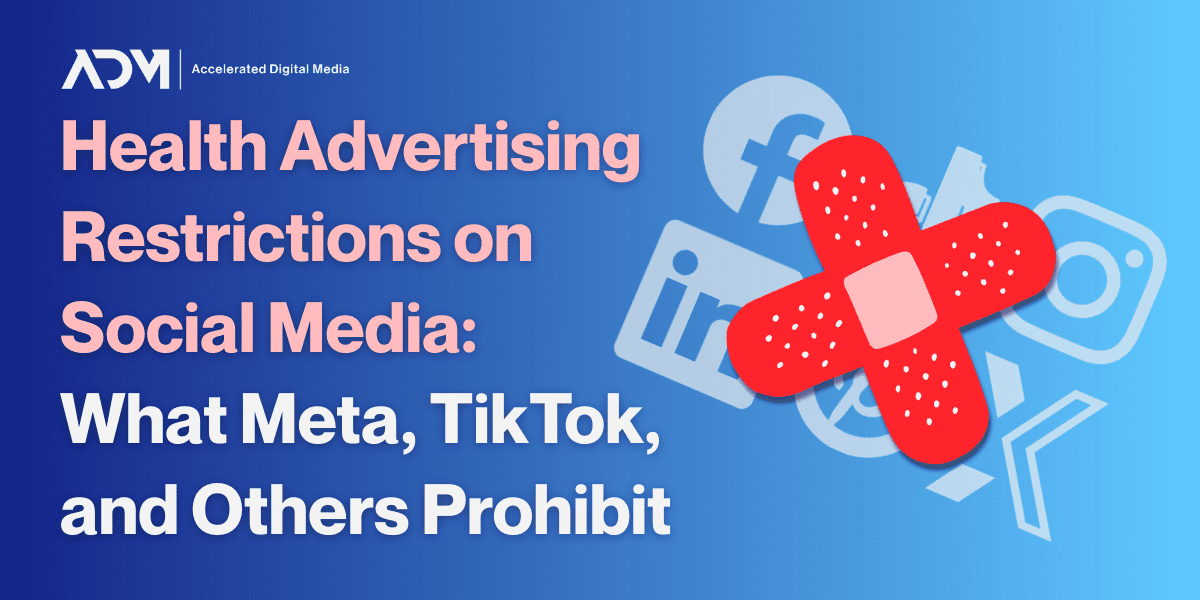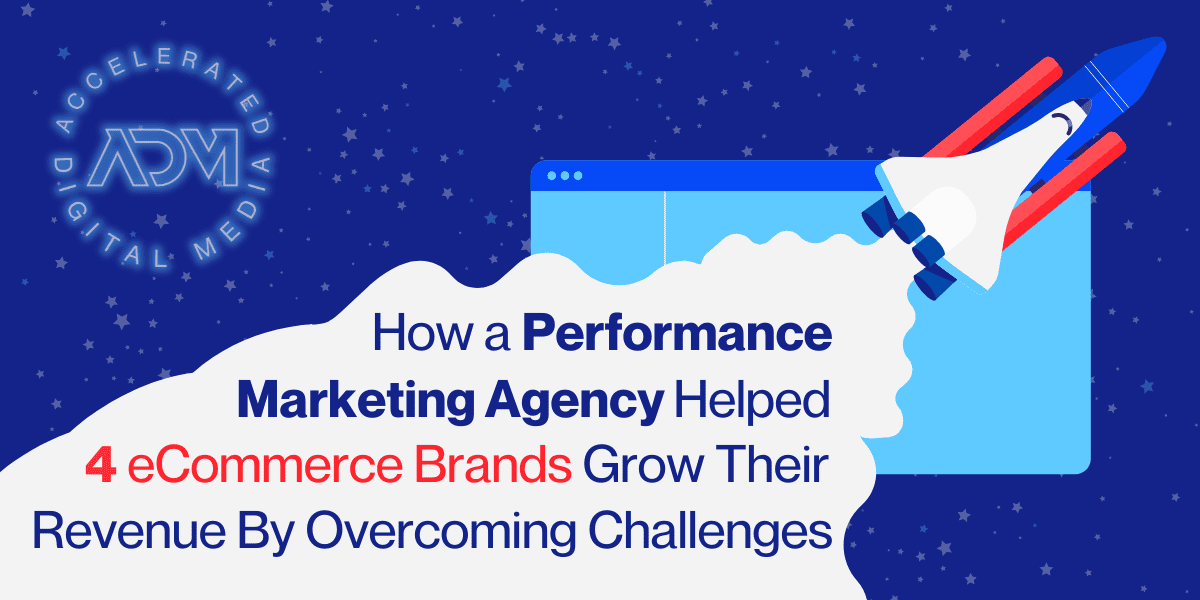Most marketing firms serve a wide range of clients. And often, that works just fine: A generalist approach can achieve solid results in most industries, provided the overall principles and regulations are consistent across them.
It’s a different story, however, when it comes to businesses operating in the digital health space.
The healthcare industry is complex and highly regulated, and its prospective customers aren’t regular shoppers: They’re patients with very specific needs. All that adds up to make digital health marketing a highly-specialized pursuit.
It may seem daunting, but it’s absolutely possible to market your brand effectively in this complicated landscape, provided you have access to the right knowledge and specialized expertise to guide your efforts.
Why Digital Healthcare Marketing Requires a Unique Set of Skills and Expertise
Put simply, many of the tried-and-true digital marketing methods that work in other industries just don’t—or, perhaps, can’t—work in healthcare marketing
For one thing, healthcare is a particularly regulated space with many overlapping layers. There is a layer of federal regulation around individuals’ privacy governed by HIPAA compliance. Additionally, there is another layer of healthcare regulations governed at the state level. Finally, due to the sensitive nature of healthcare, many ad platforms enforce their own policies/regulations around personal identifiable information (PII) and personal health information (PHI). All of this governance impacts data collection, optimization capabilities, and targeting and acquisition strategies. The bottom line: Your ability to track a patient’s journey and use what you learn to market your services is limited.
These necessary protections aren’t the only complicating factors. The way individuals seek out healthcare solutions via digital channels differs significantly from the way they approach general eCommerce. You aren’t just serving consumers. You are serving patients with unique medical concerns, who often experience complex emotions as a result. Patients research, learn, and engage differently than “buyers”, so their unique needs must be understood along their acquisition journey.
Our understanding of government and platform regulations, patient journey mapping, and the role of brand credibility in health marketing give our firm a leg up on general growth marketing agencies.
The Core Marketing Strategies Your Digital Health Brand Needs
So what do you need to successfully market a digital health company? At ADM, we’ve been homing in on the answer to that question for the past five-plus years. We’ve built a set of core service offerings that drive value for digital health brands. These include: Search Engine Marketing (SEM), Paid Social, Programmatic Advertising, Data & Analytics (DNA), and Creative Asset Creation.
Through research, trial, and innovation, we’ve developed a deep strategic understanding of the rapidly-growing digital health sector. That pursuit informs each of our offerings. Our expertise in each of the following digital health domains fuels every marketing playbook we write and every strategy we recommend.
Staying in Tune With the Industry
Successful marketers need a firm grasp of all the moving parts that make the digital health marketing environment so unique: The nuances of catering to cash or insurance payments; the ins and outs of different care delivery models and provider networks; and the tech and funding trends that shape the competitive landscape. It’s a complicated industry where experience, innovation, and adaptation are essential to marketing success.
Patient Journey Mapping
To effectively connect with your target audience, you need to understand their journey and the various stages and behaviors they typically move through when seeking and selecting care. We build detailed roadmaps for your distinct patient segments, and we carefully choose the right ad mediums and messages to resonate with potential patients at each step of their journey.
Compliant Health and Wellness Advertising
Advertising practices must follow regulations set by federal and local governments, industry organizations, and advertising platforms. With so many regulatory bodies and requirements to navigate, compliance wherewithal is imperative. That’s why we work to build Analytics implementations in ways that protect PHI, and we constantly educate ourselves on the latest enforcement actions to stay on top of evolving policy concerns.
Patient Acquisition Tactics
Digital health companies aim to bring quality care to more patients in more convenient ways. Doing that consistently requires a robust full-funnel, omnichannel strategy. In traditional eCommerce, if someone is looking for shoes, they Google “shoes.” Digital health journeys aren’t as linear. Identifying patient search intent is often the first step to patient acquisition. They may search for symptom or sub-symptom-related keywords. Digital health marketers must craft nuanced keywording and messaging strategies to succeed, and landing pages must speak to each specific search intent or ad channel.
With these core digital health marketing strategies in mind, we work closely with our clients to accelerate their growth.
ADM’s Four-Step Approach to Getting Results for Digital Healthcare Brands
1. Discover: Conduct an Audit of Existing Marketing Efforts
Auditing your marketing plan is just good business. A thorough analysis of your digital health marketing efforts—from ad copy and landing page content to audience segmentation strategies and creative assets—ensures that your efforts align with your business goals. Audits require a large time commitment and can be cumbersome for in-house teams to conduct, and frankly, often benefit from an outside perspective.
An ADM marketing audit isn’t an average checkup. We look at everything—landing page copy, creative assets, SEM and social media account structures, conversion rate optimization, and more. We run detailed investigations that measure success, weed out inflated data, and identify new areas for growth. We examine each channel individually through the lens of each of our four core strategies.
Do you have the right creative and messaging approach for your different patient populations? Do you have clear calls to action and an intuitive website flow that will determine if the care you offer is right for them? How are you aggregating performance across each individual channel? Do you have an accurate source of truth to inform future budget and strategy decisions?
By the time we finish our audit, we’ll have everything needed to craft a potent, compliant strategy that’s customized specifically to your digital health brand.
2. Strategize: Write Your Healthcare Marketing Playbook
Once we’ve established your digital marketing baseline, it’s time to put an informed, data-driven plan in place. Our digital health marketing experts work with you to develop a strategy that is informed by your business model, tailored to your brand’s strengths and weaknesses, and designed around your patient journeys.
We specialize in tackling unique digital health challenges. ADM experts achieved a 44% increase in patient conversion rates for a teletherapy startup by developing a full-funnel strategy to nurture patients towards bottom-of-the-funnel, offline patient conversions unique to this particular client.
We work well with the industry’s many nuances, including the different payment models that digital health brands balance. For another client, we segmented the patient journeys of insurance and cash buyers. ADM mapped each of these journeys separately, creating unique ad campaigns, custom landing pages, and checkout flows. Our recommended tactics drove a 46% increase in conversions for cash payments and grew the accepted insurance segment of the client’s market by 222%.
3. Implement: Roll Out the Marketing Plan Across All Channels
ADM’s SEM, social, and programmatic teams collaborate to ensure each channel is complementing the others. From assigning the appropriate budgets to maintaining consistent copy to leveraging audience and creative insights from one channel across all three, our teams work in tandem toward unified goals.
Our industry experts also maintain partnerships with the platforms that matter most to your digital health marketing strategy, like Google and Meta. Those partnerships enable faster troubleshooting and early access to new beta features, so we can keep pushing boundaries to test new techniques for our clients. We also partner with industry-leading demand-side platforms (DSP) to power rich, insight-laden programmatic advertising campaigns.
Your dedicated account team executes and reports on documented daily, weekly, bi-weekly, monthly, and quarterly deliverables and carefully tracks the performance of every campaign event. Such tracking also requires special attention when it comes to the healthcare space in order to remain compliant with industry and privacy regulations.
4. Optimize: Measure Results and Adjust the Marketing Strategy
Personal health data is actively protected and regulated for good reason. Knowing what patient data you can collect and use in the feedback optimization loop of your marketing program requires extensive industry knowledge.
Starting with the initial audit and at regular intervals after that, we thoroughly examine your analytics configuration to ensure continuous HIPAA compliance. We can also guide you on the appropriate use of patient data to protect patients’ sensitive health privacy needs without sacrificing your brand’s goals for patient nurturing and acquisition. We’re also immersed in the distinct platform policies that dictate what health services you can advertise on SEM or social—and how you’re allowed to target or message around them.
Infuse Your Digital Healthcare Marketing Strategy With the Right Expertise
A patient who has specific chronic health conditions requires personalized, expert care from a specialist who covers that condition. Likewise, digital health brands should seek out marketing partners who understand their unique problems.
A generalist agency may be able to point you in the right direction or prescribe a general analgesic, but at the end of the day, you want your marketing program in the hands of a team that focuses specifically on its unique needs. If you’re ready to see what you can achieve with that kind of partner, let’s talk.




